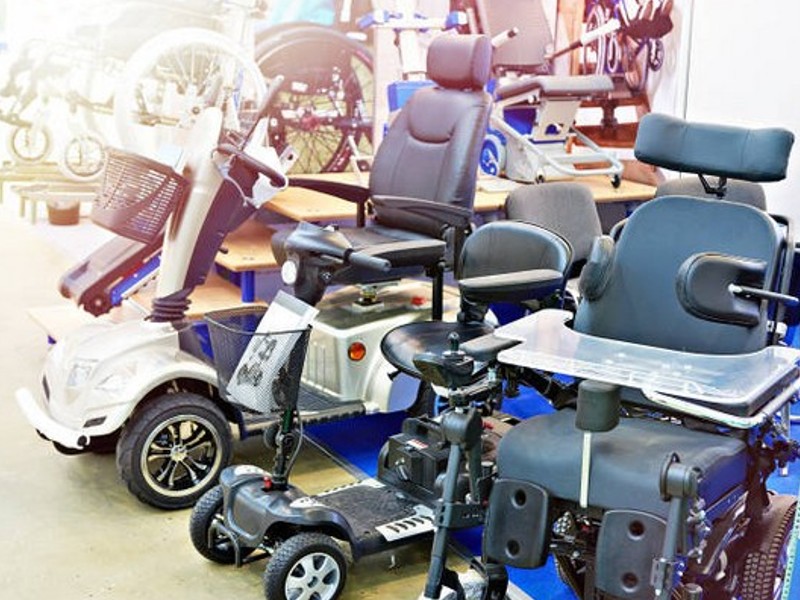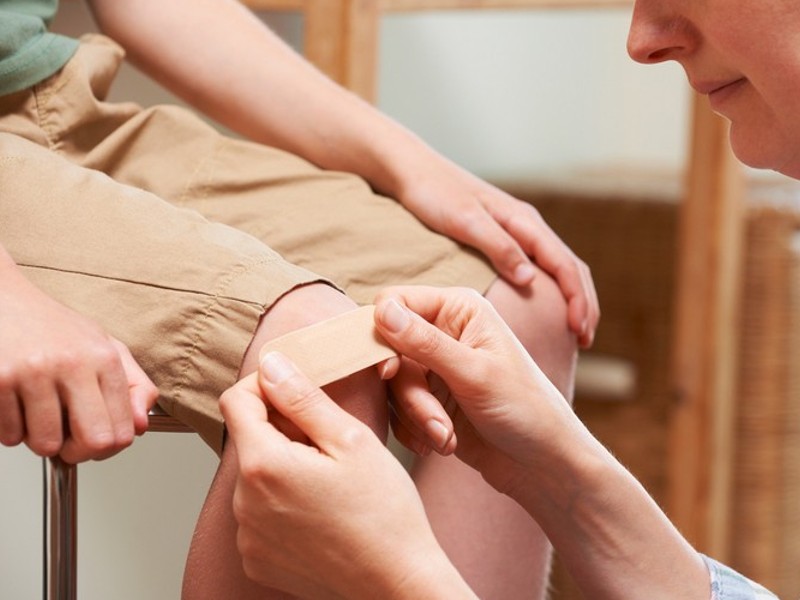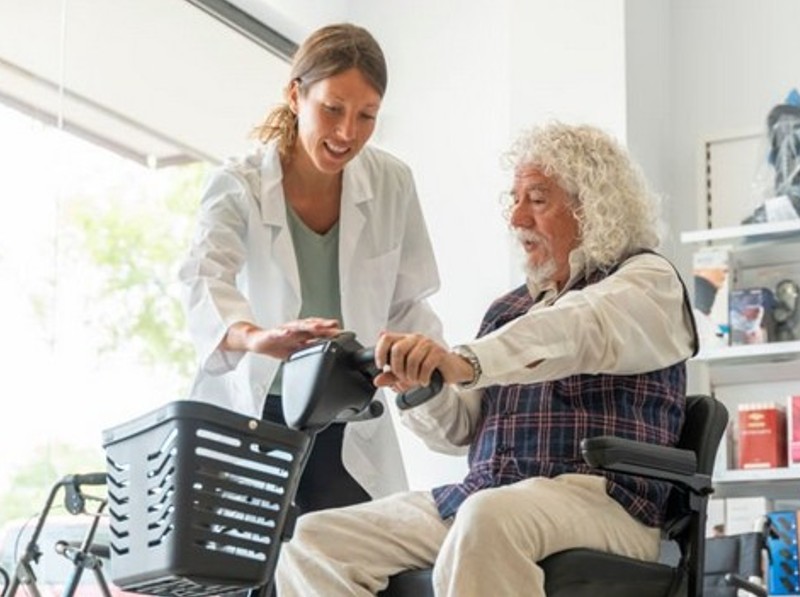Table of Contents
In a world that just won’t quit, there’s something wonderfully reassuring about knowing there’s a store that’s got your back when health serves up an unexpected curve. The unglamorous medical supplies store may lack the flash of a boutique or the hum of a coffee bar, but it’s where everyday heroes go shopping. Whether it’s a mom grabbing a nebulizer for a wheezing child, a nurse replenishing scrubs and PPE, or a caregiver locating the proper walker for a family member pharmacies are the lifeline individuals didn’t realize they needed until they absolutely did.
That’s the thing about health: it doesn’t always come with a warning. One day you’re fine, the next you’ve twisted an ankle and need crutches, or your aging dad needs a blood pressure monitor that doesn’t feel like a medieval torture device. That’s where a good old-fashioned, fully-stocked, thoughtfully-run medical supplies shop steps in and says, “We’ve got you.”
More Than Just Thermometers and Bandages
Sure, at first glance, it might seem like it’s all gauze rolls and digital thermometers. But walk inside and you’ll see an incredible variety that reflects real, lived-in life. From compression socks that feel more like cozy hugs than medical gear, to state-of-the-art wheelchairs that glide like sports cars, these stores have quietly evolved into wellness hubs.

A patient may be retrieving a CPAP device to finally sleep at night without gasping, or a physical therapist may be shopping for resistance bands for a patient’s rehabilitation. There are post-operative pillows, advanced blood sugar monitors, shower seats that spare dignity, and pediatric products that soothe little warriors with big battles. It is a lovely, undeserved symphony of utility and compassion.
The good news? There’s usually somebody working behind the counter who really knows their business. They’re not clerks–they’re frequently retired nurses, med techs, or individuals who’ve memorized every aisle like a foreign language. Ask them the distinction between two pulse oximeters, and they’ll inform you which one Aunt Mabel in the sticks of Idaho swears by.
Why Your Neighborhood Needs One Now
Picture working late, hurrying home, and finding that your grandpa needs a replacement oxygen cannula and the big-box stores are already closed. Or finding your child’s allergic response needs a specific type of adhesive bandage that the pharmacy down the street doesn’t stock. That’s when the medical supply store is more than a place to buy things-it’s part of your emergency kit, your health arsenal, and your sense of security.

Aside from emergencies, these pharmacies make living with chronic health issues a little more mundane. Rather than racing to grab an online order that comes in a week and is half-bungled, you are able to go in, experiment with the product, ask questions, and leave equipped. You don’t have to be the sole person to feel lost in a labyrinth of buzzwords and unpronounceable product titles.
It’s that capacity to combine knowledge with compassion that makes a medical supply store seem like a beacon in the neighborhood. It’s where individuals arrive vulnerable-frightened, drained, hopeful-and leave a bit more in charge. A bit more assisted. A bit more human.
From Hospitals to Homes, One Stop Assists
Hospitals are ground zero for medical miracles, but a lot of the healing takes place at home. Recovery isn’t always a linear process, and it’s certainly not always glamorous. Wound care, mobility assistance, respiratory therapy-all of that goes on long after the discharge papers are signed. And let’s be honest: Amazon doesn’t know your wound dressing requirements or whether that leg brace you just had shipped fits a left knee or a right knee.

A good medical supply store fills that gap between clinical practice and everyday life. It equips individuals with the ability to bring professional-grade equipment and assistance into the comfort of one’s own home. Parents are able to locate pediatric nebulizers in the form of dragons, and post-surgery patients can learn how to use a knee scooter without removing every corner of the hall. That blend of utility and niceness? You can’t app for that. It’s human, and it’s crucial.
The Heart Behind the Medical Supplies Store
Here’s the actual secret nobody reveals to you: these shops are usually owned by individuals with their own stories. Some started shop after nursing a loved one with chronic illness. Others are healthcare professionals who wished to serve their communities in an easier manner. They’ve witnessed the tears, the victories, and the uncomfortable questions that come with caring for health, and they greet it all with the sort of grace you’d want to see everywhere.
That energy carries through the store. The shelves are not only filled with product-they’re filled with purpose. The open aisles invite wheelchairs, the signs are legible even for weary eyes, and the return policies are more than reasonably generous. Because it’s not about selling stock-it’s about enabling people to get moving.
Even the most minor of details-such as if a portable toilet seat will fit over an ordinary commode or how to clean a humidifier-are all part of the customer service experience. And it’s these actual, human-based interactions that turn a regular store into something special.
Not Just For the Sick or Injured
One of the biggest myths about a medical supplies store is that it’s just for “sick people.” No way. Athletes swing by for cold wraps. Travelers purchase mini first-aid kits. Pregnant women seek out maternity belts and baby digital thermometers. Busy people snag ergonomic pillows to outsmart neck pain before it destroys another Monday.
Wellness is for all, and those stores are embracing that increasingly. You may come in to get an ankle support and leave with a newfound knowledge of posture correction devices or sleep aids. It’s not about responding to sickness-it’s about cultivating health at every conceivable stage and degree.
A Trusted Cornerstone in Health and Healing
The truth is, no one really wants to need a medical supplies shop. It’s not like shopping for a new pair of sneakers or planning a vacation. But when life takes a turn-and it will-it’s a place where the practical meets the compassionate. Where you’re not just a customer; you’re a person who deserves comfort, clarity, and the right tools to get through.
So yes, it is not perhaps as sexy as a tech shop or as trendy as a new restaurant, but it possesses something arguably more fundamental: purpose. Subdued, solid, unshakeable purpose.
Because when you’re attempting to make life tolerable for somebody you love-or for yourself-that building with the crutches, the shower chairs, and the folks who actually care? That’s where you go.
That’s why it’s important.
Healing Happens in Unexpected Places
A medical supply store is not flashy, but it is deeply human. It’s where knowledge and vulnerability intersect, and where healing has a home base beyond the hospital walls. As medicine becomes more complex, impersonal, and computerized, these shops provide a tactile reminder that care is still best served hand-to-hand. Whether it’s a cane that enables someone to walk again or a bandage that enables a wound to breathe, these are not products in the classical sense-they’re tiny agents of healing, dignity, and strength. And that? That’s something worth celebrating.








